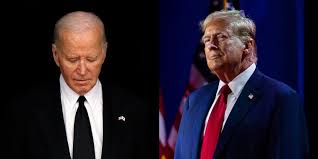Yog Rahi Gupta
Donald Trump’s official nomination as the Republican presidential candidate has stirred significant controversy, compounded by a recent assassination attempt on his life. This series of events has not only shocked the United States but has also drawn widespread condemnation from around the globe. As the nation prepares for another contentious election, it is crucial to critically examine Trump’s chances of winning and the potential trajectory of the United States under his leadership if he succeeds.
The attempt on Trump’s life is a stark reminder of the intense polarization that characterizes contemporary American politics. The incident has been condemned universally, with leaders from diverse political backgrounds and countries expressing their disapproval. This widespread condemnation underscores a global consensus against violence and highlights the heightened tensions surrounding Trump’s candidacy.
Analyzing Trump’s prospects for victory involves considering several factors. Firstly, his loyal base remains a formidable force, unwavering in their support despite numerous controversies. His rhetoric and policies resonate with a significant portion of the electorate who feel disenfranchised by the political establishment.
However, Trump’s divisiveness also galvanizes opposition. His presidency was marked by numerous scandals, policy reversals, and a contentious handling of the COVID-19 pandemic. These factors have left a considerable segment of the population deeply opposed to his return to the White House.
Furthermore, the broader Republican Party is experiencing internal divisions. While some factions staunchly support Trump, others seek a more moderate or alternative candidate. This split could impact his ability to consolidate the party’s support.
If Trump wins, the United States could see a continuation and intensification of his previous policies. His administration would likely focus on stringent immigration policies, deregulation, and a robust “America First” foreign policy stance. Economic policies might emphasize tax cuts and reduced government intervention in the market, aiming to spur growth but potentially increasing inequality.
On the international stage, Trump’s approach could lead to strained relationships with traditional allies while fostering closer ties with authoritarian regimes. His skepticism towards multilateral organizations might result in further withdrawals from international agreements and a pivot towards bilateral deals.
Domestically, Trump’s leadership could exacerbate the existing social and political divides. His confrontational style and often incendiary rhetoric might fuel further polarization, making bipartisan cooperation increasingly difficult. Issues such as healthcare, climate change, and social justice could become even more contentious under his administration.
As Donald Trump embarks on his journey to reclaim the presidency, the nation stands at a crossroads. The assassination attempt and its subsequent global condemnation highlight the volatile nature of this election cycle. While Trump’s dedicated supporters provide a solid foundation for his campaign, the opposition he faces, both within his party and from the general electorate, poses significant challenges. The direction in which he might lead the United States, characterized by his previous tenure, suggests a period of intensified partisanship and a dramatic shift in both domestic and foreign policies. The upcoming election will undoubtedly be a defining moment for the country, determining the path it will take in the years to come.


